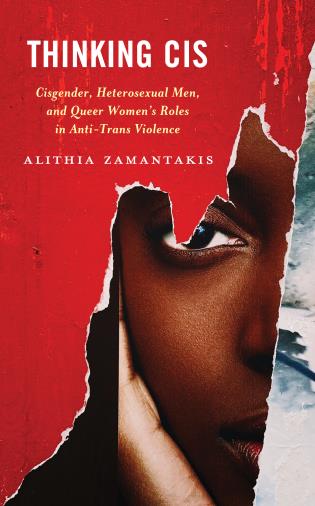alithia zamantakis Promoted to Research Assistant Professor
 Former postdoctoral fellow alithia zamantakis, PhD, was promoted to research assistant professor at Northwestern University’s Institute for Sexual and Gender Minority Health and Wellbeing (ISGMH) on October 1, 2023.
Former postdoctoral fellow alithia zamantakis, PhD, was promoted to research assistant professor at Northwestern University’s Institute for Sexual and Gender Minority Health and Wellbeing (ISGMH) on October 1, 2023.
A sociologist, alithia originally joined ISGMH from Georgia State University in 2021 as a postdoctoral fellow working with the Implementation Science Coordination Initiative (ISCI) and Keep It Up! (KIU!). Her promotion to faculty coincides with an appointment as program director of the new NIH-funded Sociostructural Implementation Science Coordination Initiative (SISCI).
"I am looking forward to continuing to work with the many staff and partners who make ISGMH such an exciting, dynamic, and fruitful place to work,” she said.
alithia's research focuses primarily on health equity for Black and Latinx transgender and nonbinary individuals, specifically regarding HIV care and gender affirming care. She is especially interested in the use of implementation science to overcome disparities in access to high-quality care experienced by these populations.
“I am currently looking at the structural barriers Black and Latina trans women experience when trying to access gender-affirming care and HIV care, as well as how to alleviate those barriers,” said alithia. “Poverty, lack of reliable transportation, homelessness, violence, racism, cissexism, misogyny—all of these things impede whether someone can access care. Even in a state like Illinois, where Medicare and Medicaid cover gender-affirming care, trans folks might have to travel hours to reach a site that actually offers that care.”
Improving HIV Implementation Science
The Sociostructural Implementation Science Coordination Initiative (SISCI) at ISGMH is a newly established coordination hub that works with five NIH-funded HIV prevention projects across the US.
These five companion R01 projects study structural and social determinants of health, as well as the structural interventions required to improve HIV prevention, treatment, and linkage to care.
“SISCI’s role is to provide methodological support to these projects. These five projects are testing interventions for specific marginalized populations, like rural men who have sex with men or justice-involved individuals. We want to support the scale up of these interventions and work with projects to incorporate common data elements that can allow us to ask different and important questions about structural interventions and social determinants of health,” said alithia.
More broadly, the Initiative intends to advance the field of HIV implementation science within the US so that larger, structural issues that impact HIV care can be addressed.
According to alithia, “we need to tackle these larger structural problems to end the HIV epidemic in the US."
Thinking Cis
 This December, alithia’s first book is slated for publication. Thinking Cis: Cisgender, Heterosexual Men, and Queer Women's Roles in Anti-Trans Violence (Roman & Littlefield) is the culmination of her graduate degree dissertation and examines the role cisgender people play in the perpetuation of violence against transgender women.
This December, alithia’s first book is slated for publication. Thinking Cis: Cisgender, Heterosexual Men, and Queer Women's Roles in Anti-Trans Violence (Roman & Littlefield) is the culmination of her graduate degree dissertation and examines the role cisgender people play in the perpetuation of violence against transgender women.
“One major point of my research and this book is to show how cisgender people make sense of anti-trans violence. When people think about the murders of trans folks, the focus is often on transphobia— someone hating another person because they are trans. But through interviews with cisgender men and cisgender lesbian, bi, and queer women, I found that transphobia is not the main issue that leads to anti-trans violence,” she said.
As alithia uncovered in conversations with study participants, even cisgender people who claimed to be against anti-trans violence expressed a stigma associated with dating, feeling attracted to, or having sex with trans women.
“There is a shared thread between people who approve of violence against trans people and those who are against violence, but also believe that trans women ‘trick’ cis men. Many participants I spoke to said they could understand why cis men might feel their masculinity was challenged by attraction to trans women and why they would then act out with violence. Trans women are imagined as weapons in this way of thinking, so there is a sense that cis men are protecting themselves through violence. Inflicting violence on trans women becomes justified.”
The Center for Applied Transgender Studies at Northwestern will host a book launch and conversation with alithia on December 6 at 1pm CT.